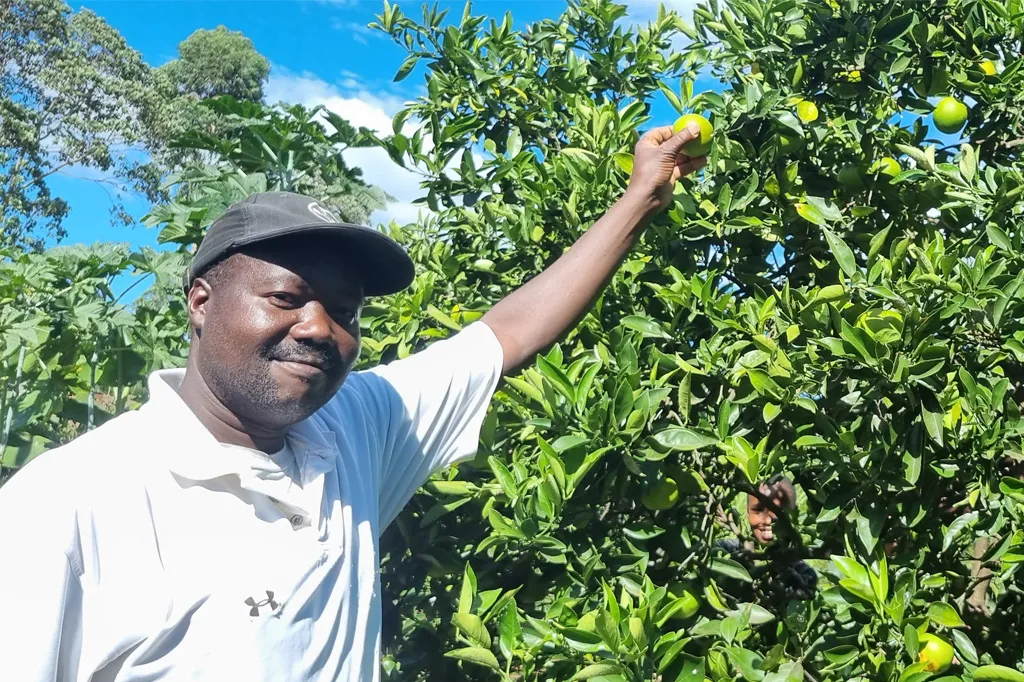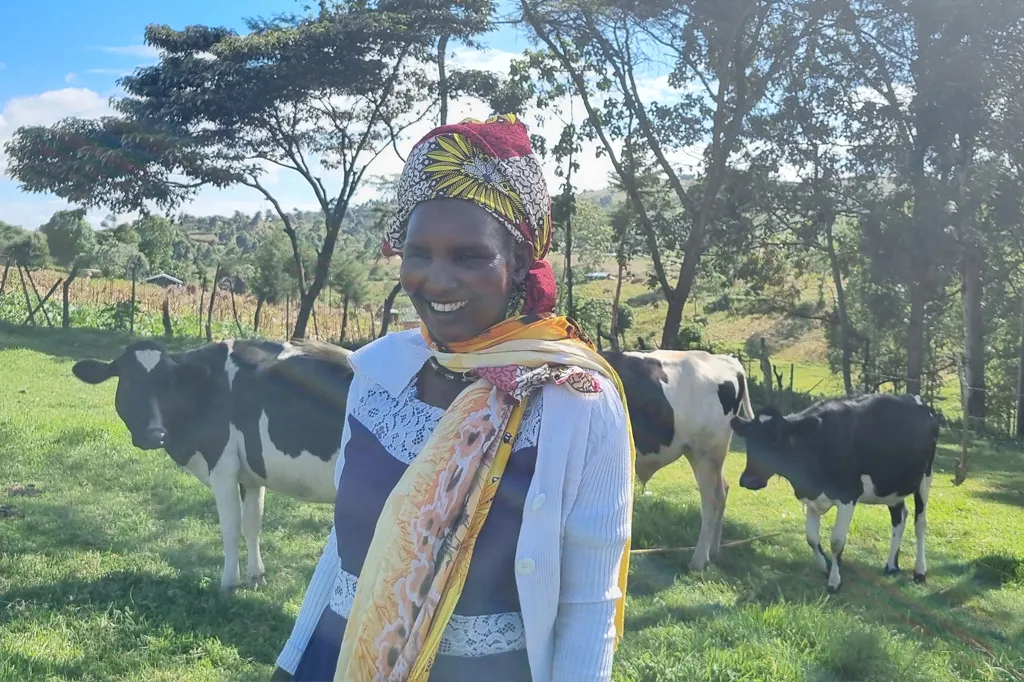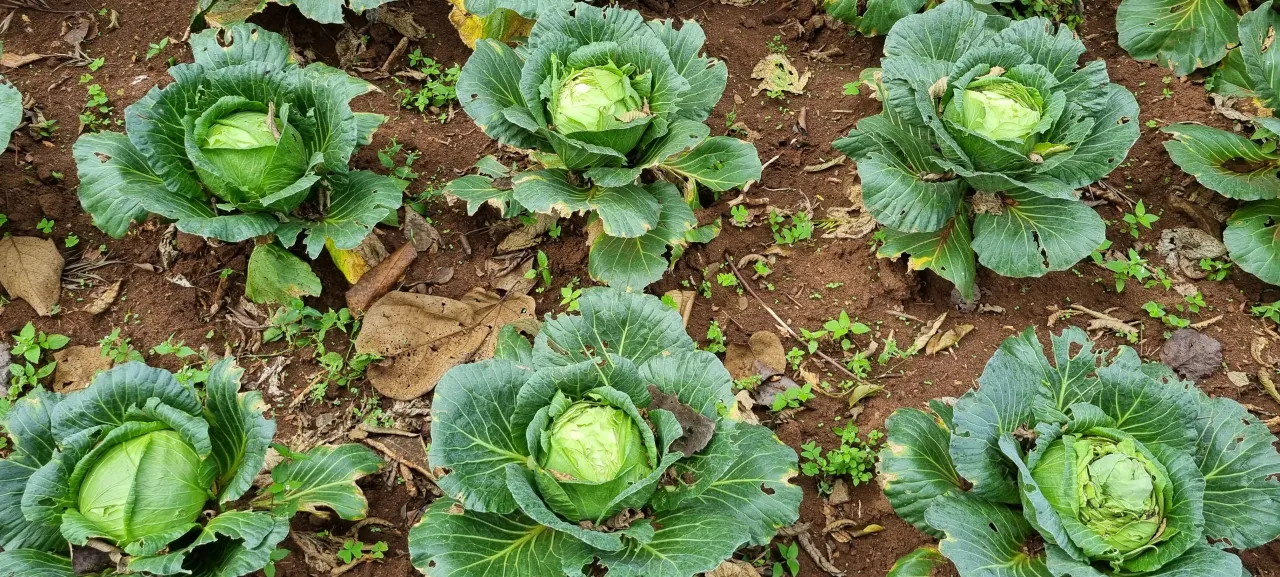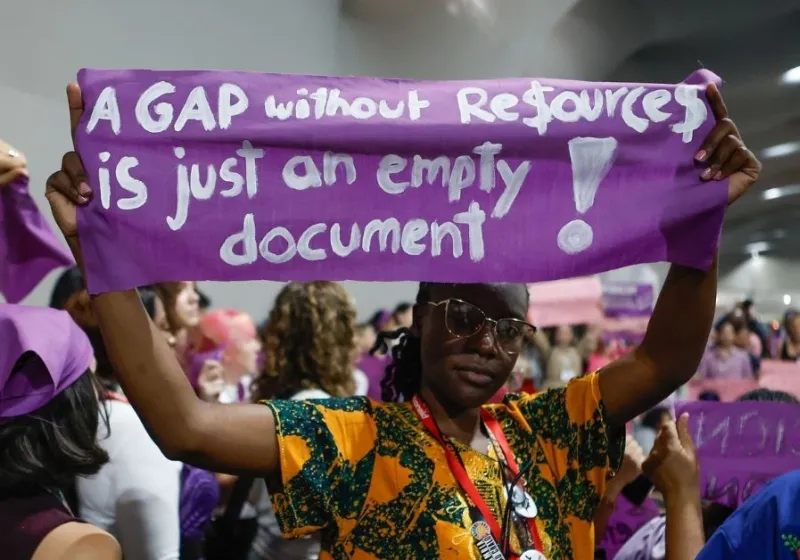“The bees send the children to school”

“The bees send the children to school”, says Tomas Rono as we approach the six bee hives by the edge of the garden and a loud buzzing reach our ears.
Tomas’ wife Leah Rono signed membership with Vi Agroforestry’s partner Marakwet highlands’ farmer association already in 2014. “At that time, I did all of the farming and work in the home. It was heavy and lonely.”

Tomas is quick to admit with a smile of guilt that “yes, during those times I spent my days in the village, talking nonsense with other men while Leah did all the hard work here at home.”
But Tomas started to partake in the association’s members meetings together with Leah. Apart from new knowledge on farming to feed the family and make an income they also took issues of gender equality with them home. To become successful with small holder farming it became clear that they would have to work as a team, which is also how they describe their marriage today.
Their story is shared by all the organized farmers we meet in northwest Kenya, namely that the family economy has improved, the relationship is more equal and that the voice and work of the woman is heard and acknowledged.
Increase knowledge of agricultural methodologies
Simplistically put, Vi Agroforestry do two things: support farmer associations to become strong and reliable civil society actors and increase knowledge of agricultural methodologies that improve harvests, supports biodiversity and are resilient to the effects of climate change.
The latter consist of knowledge of which plants do well together, which ones fertilize the soil, which ones that work as natural insect repellents, which ones are nitrogen fixing or prevent soil erosion and much, much more. Animals are also an important part for both household and its access to nutrients like egg and milk and for the ecosystem of the garden and its access to natural fertilizers.
Within the other arm of engagement issues of democracy, gender equality, mobilizing and advocacy are included. The democratic practise is solidly anchored and Vi Agroforestry share stories of how several chairpersons of farmer associations have been forced off their positions prematurely when deemed not being able to deliver to expectation. Apart from electing the boards of the associations, the farmers also choose facilitators who are given specific training, to for example measure how the farms of the members contributes to bind carbon dioxide so they can partake in carbon trade. Many additionally organize within different interest groups with elected leaders, such as women or youth groups in where they roll out public education and advocacy initiatives.
We invest in the farm and the children with the money we make
The methods can increase the harvests
On small plots of land, many times not bigger that 2 acres, the methods can increase the harvests to not only feed the family but also create a surplus enough to sell. The World Bank estimate that around two billion people live off small scale farming, many of them also live in absolute poverty. The more than 100,000 farmers supported by Vi Agroforestry testify to how the methods work for them. In a self-assessment survey, they state that the farming has reduced the number of food insecure months by six months.
From having hunger present during 10 of the months in a year, that number is now reduced to 4 months/year. That is an astonishing result given that the only thing that changed is how the land is being used. What exact spin off effects this have had for health, early child development, mental wellbeing and safety Vi Agroforestry has not tried to measure but is it rather easy to imagine.
Tomas and Leah continue to show us around their garden, describing which houses has been built since they started to make extra incomes. The henhouse that at one point housed 400 chickens, the coffee plants, the orange and banana trees, the grass that prevent soil erosion and is used as cow fodder because of its richness in protein which gives more milk. The bee hives are the latest addition to the household.
”We have had bees before but in different hives. These ones that were given from the association are better, they can be emptied without stressing the bees and the production is much higher, now we get 20 kilos in three months whereas we previously got 3. We invest in the farm and the children with the money we make”, says Leah.

Other recent articles

ForumCiv’s social media accounts labelled as “extremist materials” in Belarus
Important message to our Belarusian followers. Any interaction with our content can now lead to legal consequences in Belarus. Please read the information below and take the necessary precautions for...

ForumCiv enters new strategic partnership
ForumCiv is proud to announce a new three-year strategic partnership with Sida, totalling SEK 137 million.

ForumCiv at COP30: African voices at the centre of climate justice
ForumCiv is participating in COP30 in Belém to amplify the voices of African civil society, who stand at the frontlines of the climate crisis yet are often excluded from decision-making.